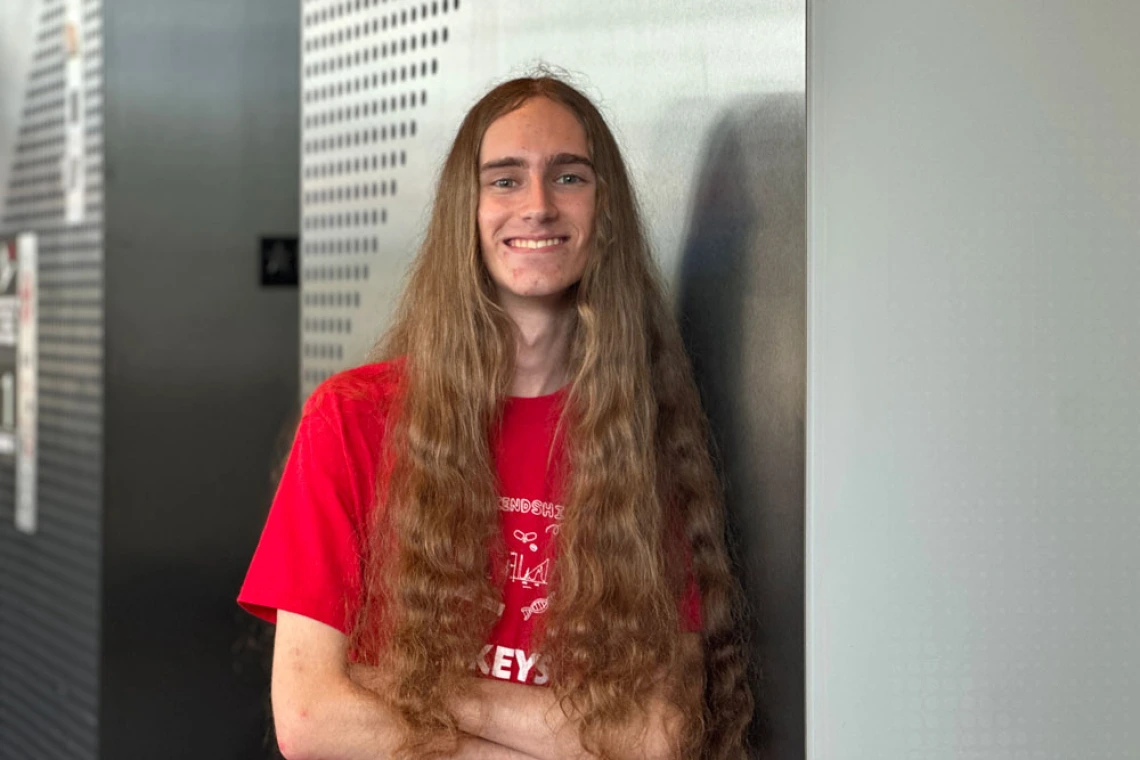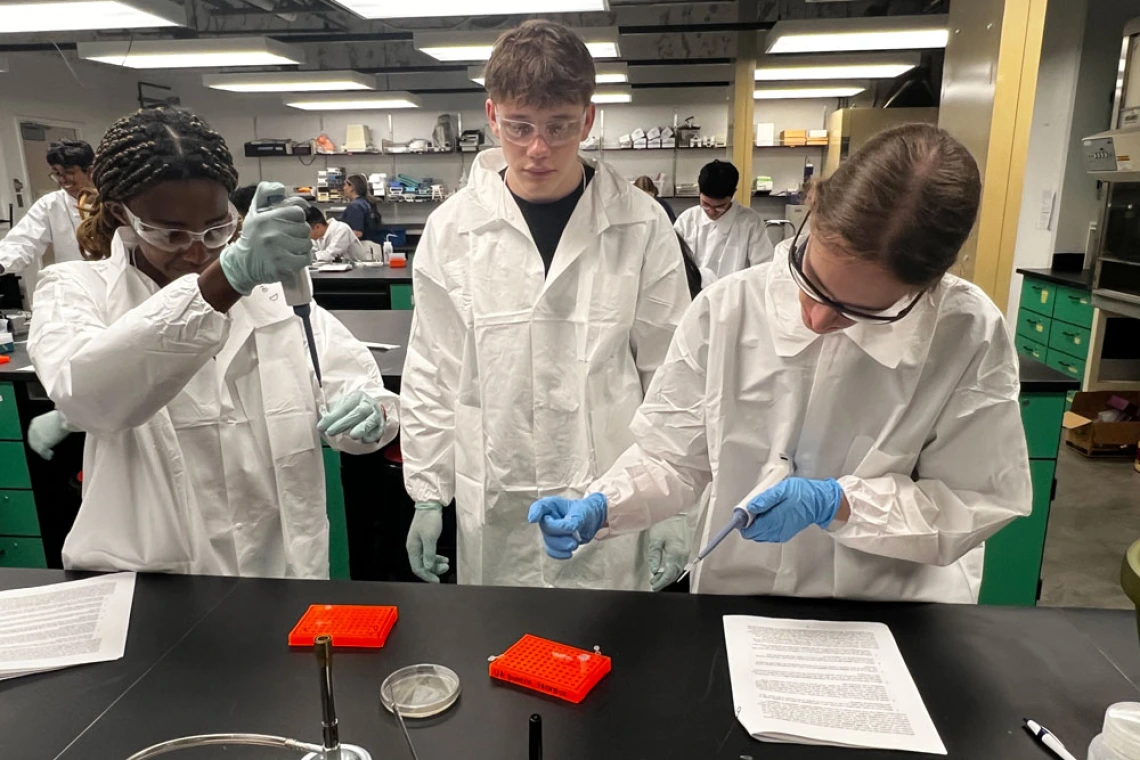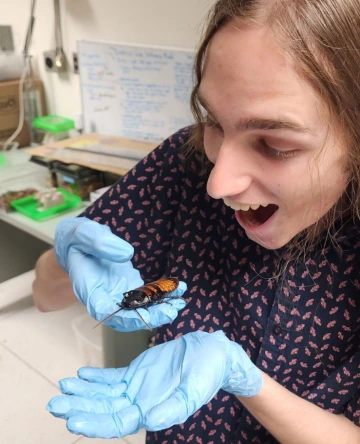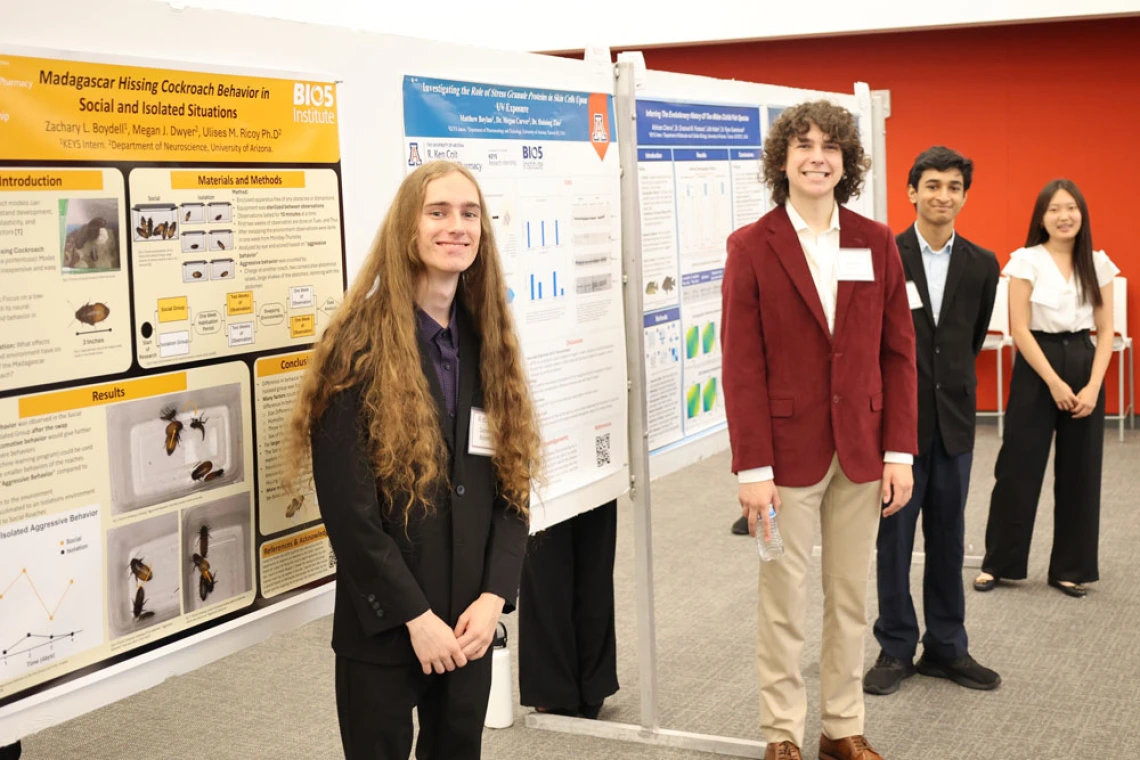Bugs, neuroscience, and empowerment: Zachary Boydell (KEYS ‘24)
Growing up in Vail, Zachary Boydell pushed himself out of his comfort zone to apply for the KEYS Research Internship and discover a passion for neuroscience that led him to attend the University of Arizona.

Zachary Boydell's KEYS Research Internship project on cockroach behavior at the University of Arizona College of Science provided the experience he needed to explore neuroscience as a career path.
“Science is pretty cool.”
This was the initial thought that popped into Zachary Boydell’s head when he heard about staff coming to his high school to present on the University of Arizona BIO5 Institute’s KEYS Research Internship. After listening to their presentation, he decided to apply and see what would happen. While he didn’t know it yet, that decision would open up possibilities for scientific research as a professional pathway.
“The KEYS Research Internship encouraged me to pursue a STEM major,” said Boydell. “It helped me with the connections and skills necessary to be successful in college, plus opened my eyes to my ability in doing research.”
His summer research experience reshaped his educational goals, placing him on a trajectory to major in neuroscience and cognitive science at the University of Arizona. While he still finds time to play guitar and video games with his four siblings, his focus is on expanding his possibilities in science.

Zachary Boydell (left) receives his certificate of completion at the end of his KEYS Research Internship for BIO5 Institute director Jennifer Barton (right).
Venturing beyond the familiar to find neuroscience
Attending Empire High School, Boydell hadn’t ventured much outside of his community in Vail. He was both surprised and excited when he was admitted to KEYS, especially considering he had been diagnosed with learning disabilities that affect reading, writing, and math.
“As a kid, I was diagnosed with dyslexia, dyscalculia, and dysgraphia, which made me not want to go to school,” said Boydell. “KEYS was one of the first times I really put myself out there.”
The KEYS program staff recognized Boydell's curiosity about science, but also his uncertainty about his capabilities and what a career in research might entail.
“I knew he would be the perfect fit for KEYS because he was excited to learn more about neuroscience, even though he wasn’t sure what area he wanted to go into in the future,” said Jordan Pilch, KEYS outreach instructional specialist. “He is an example of social cognitive career theory in action—through getting to be a neuroscientist at KEYS and his innate interest in the field, he was able to see himself succeeding.”
Like many other interns, Boydell wasn’t sure what to expect on the first day of the program. With students from all over Tucson and the state of Arizona, everyone was nervous. But by the end of the first few days, he recalled, they were bonding over the chance to work on a real-world project at a Tier 1 research institution.

Zachary Boydell (right) jumped into the biotechnology training that prepares KEYS interns for working in a research lab at the University of Arizona.
In his interview, Boydell had expressed an interest in bugs, so the program placed him with Ulises Ricoy, an associate research scientist in the U of A College of Science, who uses invertebrates—in particular, insects—for neuroscience research.
The Ricoy Lab focuses on building and maintaining accessible neurophysiology materials to promote understanding in key areas of neuroscience, including models for studying how insects adapt to their environment, videography to analyze insect movement in various settings, and developing low-cost approaches to broaden participation in neuroscience from historically underserved populations.

Interested by bugs, Zachary Boydell worked with Madagascar hissing cockroaches for his KEYS Research Internship project during the summer of 2024.
Boydell’s project, titled “Madagascar Hissing Cockroach Behavior in Social and Isolated Situations,” involved setting up different environments for cockroaches and observing their behavior, with a focus on aggression. The results from this research provide a baseline for understanding insect behavior in neuroscience.
“It was a great lab experience, and Dr. Ricoy was always willing to answer my questions,” said Boydell. “I also had a lot of help from my mentor Megan Dwyer, an undergraduate research assistant in the lab, who introduced me to working in a lab setting.”
Boydell plans to continue gaining lab experience in the coming years of his college career.
Exploring where research takes you
Boydell’s favorite part of the KEYS Research Internship was the summer showcase, a culmination of the hundreds of hours interns invested in their training and research projects. Open to university faculty, staff, students, and the public, the event gives KEYS interns the opportunity to create posters and discuss their work.
“It was awesome to engage with people and answer questions on a project that you worked on for 35 hours each week, for seven weeks,” said Boydell. “At first it seemed like so much, but by the end of the summer, I was so invested in my lab and research, that I would have gone in on the weekends!”

Zachary Boydell (left) presented his poster along with 58 other interns at the University of Arizona Health Sciences Innovation Building in July 2024.
The internship and the showcase also helped Boydell see the value of expanding his scientific community. Within his first few weeks at the University of Arizona, he joined the Neuroscience and Cognitive Science Association of Students.
“We review research papers, play Frisbee, and connect with other people in the same major,” said Boydell. “I’ve met a lot of people going to graduate school, and they’re giving me great advice on how to navigate the next four years as a neuroscience major.”
Though he’s considering different scientific paths, Boydell credits KEYS with boosting his confidence and reshaping his identity as a researcher.
“Before KEYS, I thought I would figure it out as I went along,” said Boydell. “But after that experience working in a lab, I realized I wanted to follow the path of research.”
As he adjusts to college, Boydell knows he will use his humor, positivity, and newly found empowerment to explore where research may take him next.

